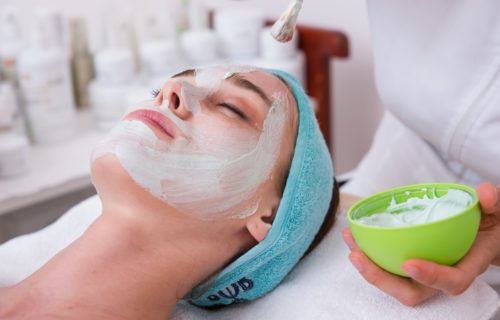ITHACA, N.Y. — The science is in — don’t be afraid to treat yourself from time to time, especially if you’ve been dealing with an especially hectic schedule. Scientists at Cornell University have found that during stressful times, most people avoid rewarding themselves with a new product or relaxing experience, even though that’s exactly when we stand to benefit the most.
“When people are anxious about money and time pressures, they believe that they won’t be able to focus on the self-gift experience and therefore won’t benefit, and so they don’t take opportunities to self-gift,” says lead study author Jacqueline Rifkin, assistant professor at the Samuel Curtis Johnson Graduate School of Management at Cornell’s SC Johnson College of Business, in a university release.
“For example, if you were offered an opportunity to get a massage during a particularly busy time of year, would you do it? We find probably not, because you figure you’d be too stressed out and distracted, and wouldn’t actually be able to relax.”
“The unfortunate paradox though, is that this way of thinking is counterproductive to wellness. It’s when we’re feeling the most crunched that individuals can actually benefit most from self-gifting,” Rifkin adds.
Prof. Rifkin and her study co-authors, Kelley Gullo Wight, assistant professor of marketing at the Kelley School of Business at Indiana University, and Keisha M. Cutright, associate professor at the Fuqua School of Business at Duke University, began this research project in 2018 with a series of experiments lasting several years. The final published paper is made up of multiple behavioral experiments, both online and in person within a behavioral lab.
People don’t treat themselves when feeling stress
The research team focused specifically on time, money, and mental health pressures and concerns, and how these factors can make people less interested in self-gifting. For one experiment, participants viewed an ad for a fictional product and then had their interest levels measured afterward. For half of the group, the add included a self-gifting tagline encouraging viewers to “carve out me-time,” or “create a special moment.”
When participants reported feeling more stressed about tightening budgets, busy schedules, or lengthy to-do lists, they also tended to be less interested in the products with self-gifting taglines. Stressed individuals bought fewer items and even indicated lower interest in trying them out. When researchers asked why, most people said they felt like they wouldn’t really be able to enjoy the experience.
Next, study authors set out to see if that really is true. Does excess stress make fun experiences less enjoyable, or are many people accidentally undercutting their own happiness? The team conducted more studies involving people engaged in self-gifting experiences, or attempting to create a special moment, to gauge the subsequent impact on happiness levels.
“It was pretty interesting to have a project that carried over from before the pandemic to during, since we had to move all our experimental paradigms online, and also adapt to the fact that people completely changed how they were thinking about self-gifting, self-care and their resources,” Prof. Rifkin notes. “More broadly, though, I think this is an opportunity for business professionals to use their influence to positively encourage or ‘nudge’ consumers to engage in behaviors that will enhance their well-being, like self-gifting.”
Can the right marketing campaign fix this?
Study authors believe their work benefits consumers but can also prove helpful to the wellness industry in general. For example, researchers suggest that products promoted as self-gifts (face masks, essential oil diffusers) should not be marketed with verbiage emphasizing constraint or scarcity, like “one-day only sale” and “items are going fast.” Instead, marketing efforts should make use of language encouraging consumers to treat themselves, even when they may not feel like it’s the perfect time to do so.
“My hope is that understanding these findings can help people challenge some of their internal narratives about when is vs. isn’t a good time to do something for yourself,” Prof. Rifkin concludes. “I know I have tried to change my habits a bit as a result of our research findings.”
The study is published in the Journal of Consumer Research.

